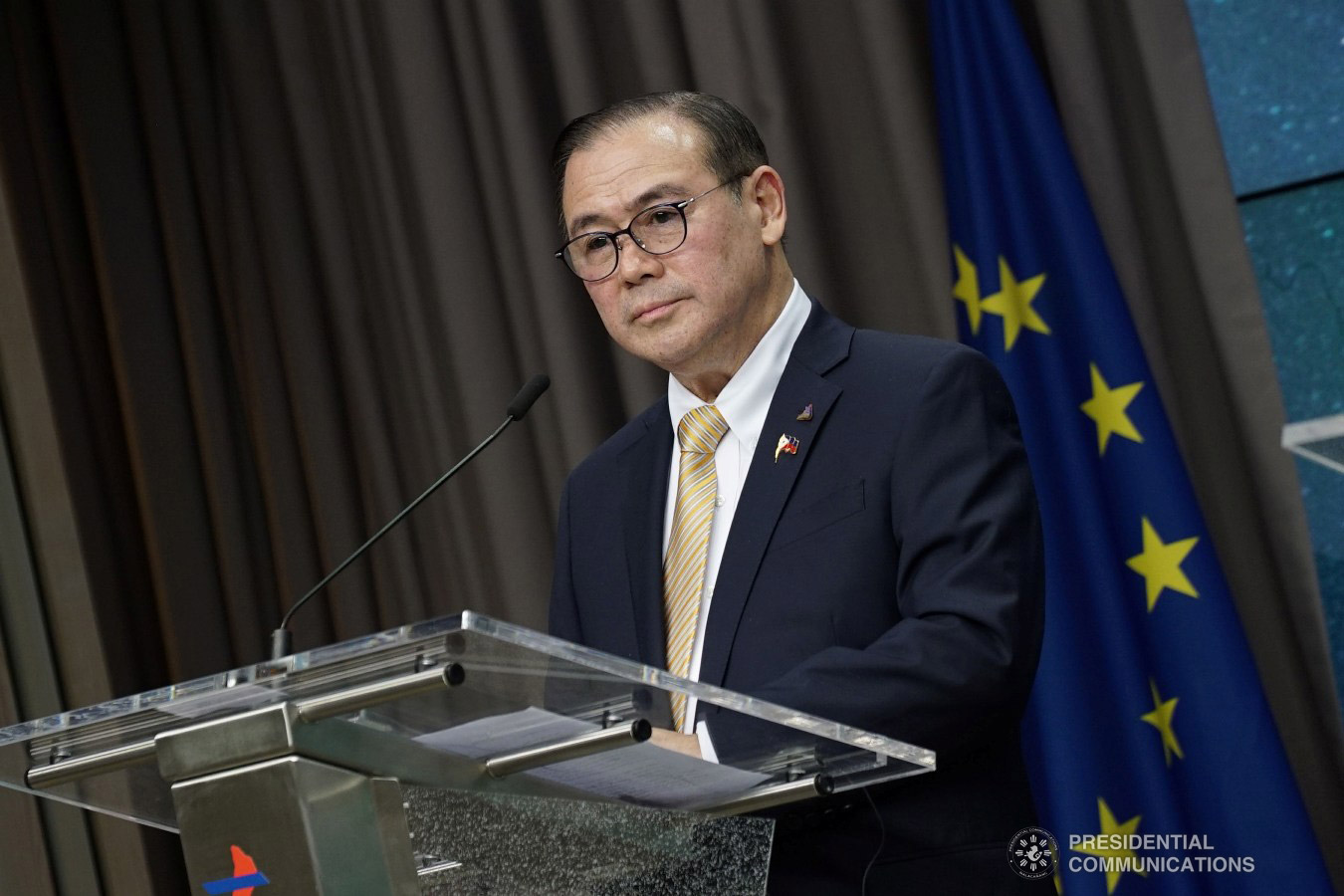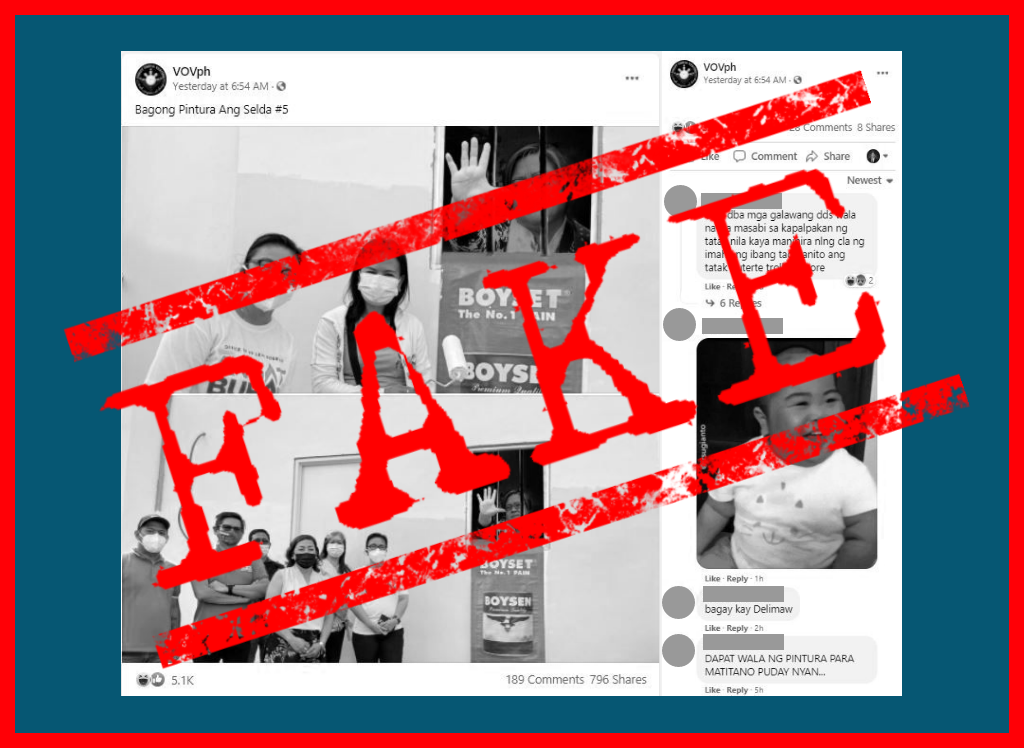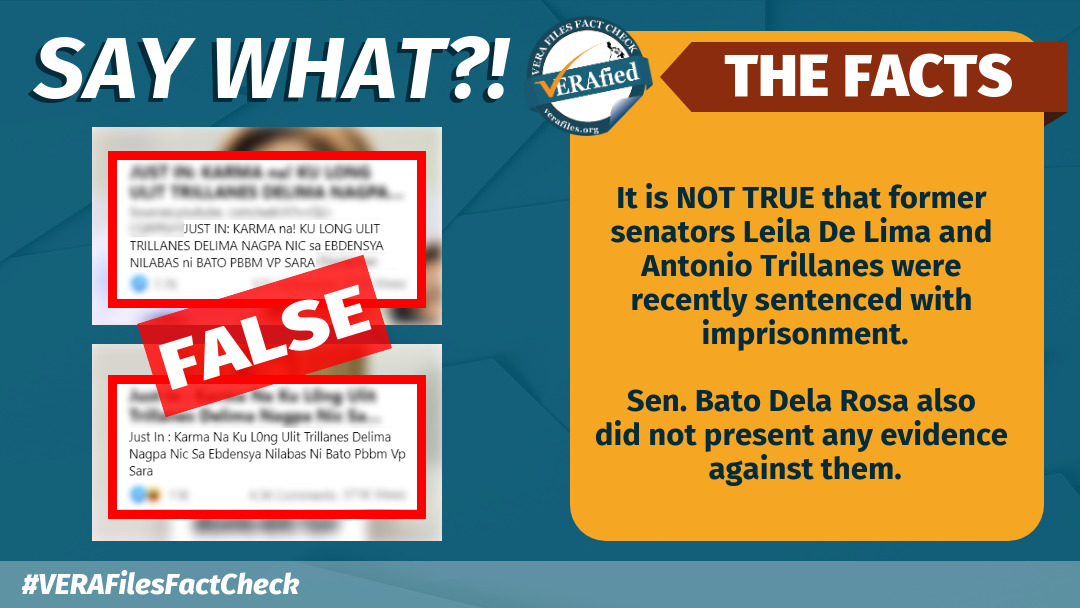Foreign Affairs Secretary Teodoro Locsin Jr.’s claim that the provision banning Philippine officials involved in the “wrongful” detention of Sen. Leila de Lima from entering the United States is not in the U.S. 2020 budget law needs context. Meanwhile, Malacañang confirms that there is a ban.
STATEMENT
In a radio interview on Jan. 4, Locsin said he had sent a memorandum to President Rodrigo Duterte on the U.S. entry ban, saying:
“We looked at the US Appropriations Act. There is no mention of denying visas to Filipinos and there is no mention of De Lima in the U.S. Appropriations Act. It’s in the Senate Resolution.”
Source: ABS-CBN News, Locsin: Allowing foreigners to enter Philippines without visa is ‘wrong’ | DZMM, Jan. 4, 2020, watch from 0:04 to 0:19
He added:
“Walang ban (There’s no ban). Right now there’s no ban because there’s supposed to be a finding. But remember that’s a Senate resolution. It did not appear in the U.S. Appropriations Act.”
Source: watch from 4:52 to 5:09
FACT
While it is true that the U.S. Appropriations Act does not explicitly mention De Lima, it still covers the Senate report provision banning Philippine officials involved in her “wrongful imprisonment” from entering the U.S. (See VERA FILES FACT SHEET: US entry ban true; state secretary to determine De Lima accusers to be barred from US)
Section 4 of the Act states that its accompanying explanatory statement will have “the same effect with respect to the allocation of funds and implementation….”
Explanatory statements or “report language” accompanying appropriation bills provide “more detailed guidance” to departments and agencies, and may “require or encourage [them] to take specified action or refrain from taking a certain action,” according to a 2010 explainer of the U.S. Congressional Service.
While an explanatory statement “does not have statutory force,” meaning departments and agencies are “not legally bound by [its] declarations,” U.S. executive branch agencies “take them seriously” because they must justify their annual budget requests to Congress, the explainer further read.
Under Division G of the explanatory statement of the U.S. 2020 budget law — the section that details appropriations for the Department of State, Foreign Operations, and related programs — U.S. Federal government entities are directed to “comply with the directives” of the report accompanying Senate Bill 2583, the Senate’s State Department budget bill, and its counterpart in the House.
This leads to the U.S. Senate Committee Report 116-126 which contains section 7022, the provision explicitly prohibiting entry to:
“…government officials about whom the Secretary [of State] has credible information have been involved in the wrongful imprisonment of…Senator Leila de Lima who was arrested in the Philippines in 2017.”
Source: U.S. Congress, S. Rept. 116-126, Sept. 26, 2019
U.S. Secretary of State Mike Pompeo will decide who of the Philippine government officials will be prohibited from entering the U.S.
Citing information from Philippine Ambassador to the U.S. Jose Manuel “Babe” Romualdez, Presidential Spokesperson Salvador Panelo on Dec. 29, 2019, confirmed that the ban is, indeed, true.





